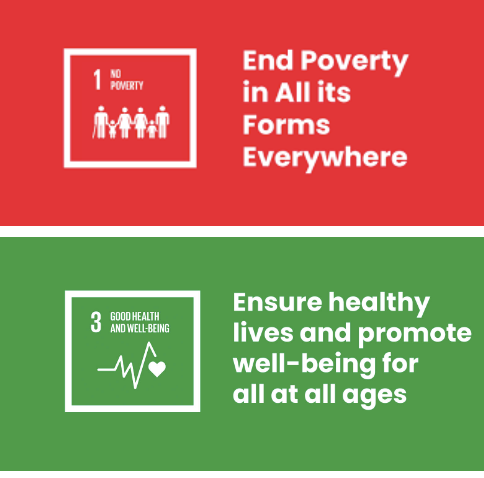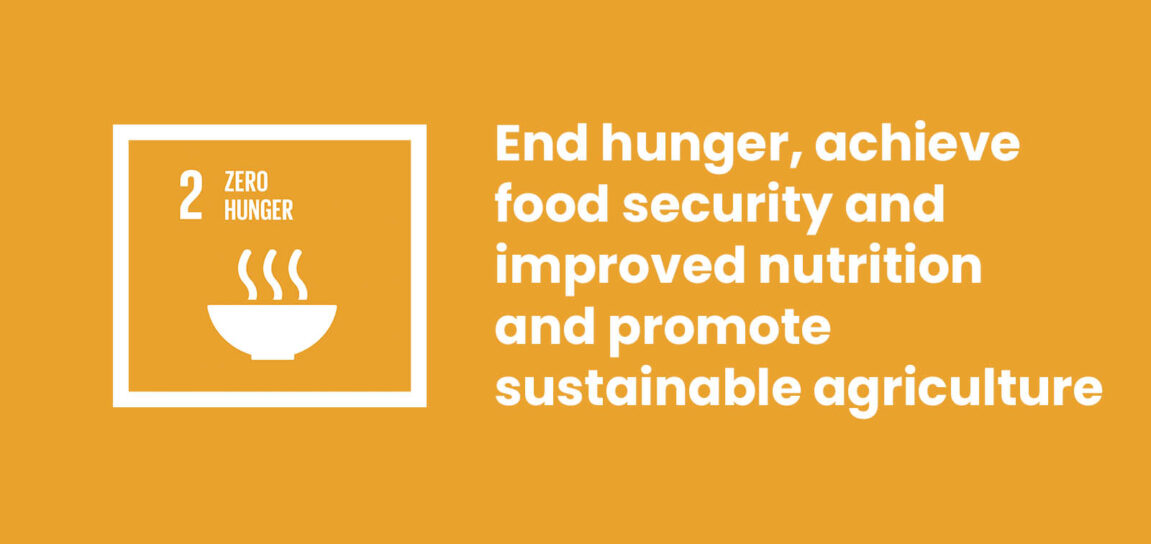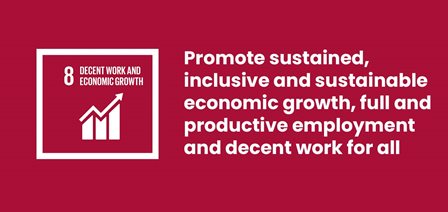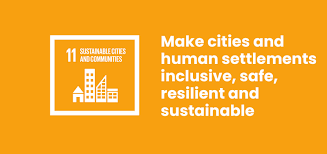Subscribe to our E-Letter!
Subscribe to our e-mail and stay up-to-date with news and resources from street vendors around the world.
Street vendors and other informal traders are often stigmatized and criminalized due to their work and disproportionately impacted by global issues such as inequality and climate change. However, they have an important role to play in reaching sustainable development goals and are already positively impacting their communities and fostering sustainable change.
The Sustainable Development Goals (SDGs) are a list of comprehensive 17 interconnected global goals that were set in 2015 by the United Nations General Assembly. The SDGs are included in a United Nations General Assembly Resolution, the 2030 Agenda for Sustainable Development, and are supposed to be reached by 2030. Each goal has specific targets and indicators identified to measure progress. The SDGs are, therefore, a framework for global development based on partnership and sustainability, and should guide States as well as other public and private actors.
The 17 SDGs are important for every human being on the planet. However, the collective action of organized street vendors is more closely linked to specific SDGs, and it is informed by other key international instruments of development and human rights, such as The New Urban Agenda and ILO Conventions and Resolutions.

Target 1.3: Implement nationally appropriate social protection systems and measures for all, including floors, and by 2030 achieve substantial coverage of the poor and the vulnerable.
Target 3.8: Achieve universal health coverage, including financial risk protection, access to quality essential health-care services and access to safe, effective, quality and affordable essential medicines and vaccines for all
Street vendors are often plagued by poverty. They turn to the informal economy due to lack of access to formal employment and survive from hand to mouth, usually without access to social protection and benefits that can support them when they are unable to work. In our comic book, Fighting for Our Rights – Why we need social protection now!, we demonstrate through the story of Chivy how her life and work cycle is constantly affected by lack of social protection, and the impacts were exacerbated by the COVID-19 pandemic.
Because we recognize the importance of social protection to ensure decent work, StreetNet and our affiliates organizations are actively promoting the full implementation of Social Security (Minimum Standards) Convention (ILO C102) and Social Protection Floors Recommendation (ILO R202). We also recognize self-organization, autonomous struggles and grass-root activism from the labor movement worldwide as a key driver to eradicate poverty and improve material conditions of communities.
Many of our affiliate organizations are also turning to the Social Solidarity Economy to provide health access and other essential services to their members, as is the case of the FIWON Cooperative in Nigeria.

Target 2.1 : By 2030, end hunger and ensure access by all people, in particular the poor and people in vulnerable situations, including infants, to safe, nutritious and sufficient food all year round
Street vendors are essential to ensure food security for the urban poor. When the COVID-19 pandemic forced many street vendors to stop working, they were not the only ones who were affected by the lockdown – their low income customers also stopped being able to get accessible food sources.

Target 5.2: Eliminate all forms of violence against all women and girls in the public and private spheres, including trafficking and sexual and other types of exploitation
Target 5.5: Ensure women’s full and effective participation and equal opportunities for leadership at all levels of decision-making in political, economic and public life
StreetNet was founded with a deep commitment to women’s empowerment. Our founding Organisational Policy on Class and Gender clearly states that:
“That StreetNet will remain committed to empowering women vendors and assisting them to overcome the marginalizing effects of gender discrimination”
“That StreetNet will remain committed to building strong leadership among the poorest and most disadvantaged vendors, particularly women”
Our Constitution also clearly states that at least 50% of our International Council must be composed of women.
We make sure that women informal traders participate fully in the leadership of our organization and encourage our affiliates to do the same.We also continue to build capacities and help develop leadership skills for young female leaders. Furthermore, we are deeply concerned with the violence and harassment that women informal traders experience on a daily basis.
That is why we were one of the key organizations of informal economy workers pushing for the drafting of Violence and Harassment Convention (ILO C190) and Violence and Harassment Recommendation (R 206), both documents that explicitly state that informal traders are equally entitled to a workplace free of harassment and violence as formally employed workers. We also raise awareness of women’s struggle through webinars and articles, explaining the importance of international instruments such as ILOC190 and R 206.

Target 8.3: Promote development-oriented policies that support productive activities, decent job creation, entrepreneurship, creativity and innovation, and encourage the formalization and growth of micro-, small- and medium-sized enterprises, including through access to financial services
Target 8.5: By 2030, achieve full and productive employment and decent work for all women and men, including for young people and persons with disabilities, and equal pay for work of equal value
Target 8.8: Protect labour rights and promote safe and secure working environments for all workers, including migrant workers, in particular women migrants, and those in precarious employment
Our main goal as an international global alliance of street vendors is to strive for decent work for all workers, especially those in the informal economy that struggle with precarious employment. That is why we, along with our affiliates and partner organizations, call on governments to fully implement Transition from the Informal to the Formal Economy Recommendation (ILO R204), one of the first international instruments to recognize that informal economy workers are often denied to right to work and, especially, the right to decent working conditions, and that States should invest in democratic and human rights-based processes to transition workers from the informal to the formal economy.
Every year, we come together with other key partner representatives of workers in the informal economy and participate in the International Labour Conference, bringing the demands of informal economy workers to the global agenda as a united front.

Target 11.3: By 2030, enhance inclusive and sustainable urbanization and capacity for participatory, integrated and sustainable human settlement planning and management in all countries
Informal traders work in public spaces. Although they do not have an employer as such, they are constantly in contact with municipal authorities – often engaged in hostile and mutually distrustful relationships. However, this does not have to be the case – the New Urban Agenda – Habitat III, presents a roadmap for more inclusive, sustainable and democratic cities, and street vendors can play a key role in making that ideal come true.
That is why we often work and partner with activist networks and global organizations such as the Global Platform for the Right to the City, Cities Alliance and United Cities and Local Governments (UCLG). StreetNet International and its affiliates had a strong presence at Habitat III and were able to influence some of the final clauses to include street vendors and informal workers in the New Urban Agenda document. To continue our work on the implementation of the NUA and Right to the City agendas, StreetNet, and two of its affiliates are partnering with UN-Habitat and the Block by Block Foundation to collaborate in two Public Space Projects in Brazil and Nigeria.
We also share best practices of street vendors contributing to the development of urban settlements, such as our article about The Right to the City and informal economy workers in public spaces.
Our affiliate Unión General de Trabajadores en la Economía Informal – UGTI (General Union of Informal Economy Workers) has managed to advocate successfully for the rights of informal traders at national and local level. For example, they have managed to access ID of street vendors in major cities (including Medellin, Bogotá, Cali) and actively advocated for the the decision of the Constitutional Court of Colombia that states street vendors cannot be evicted of their working spaces without having an alternative space provided for them, and that recognizes the right to work of informal traders. In Medellín, they advocated for the Agreement 42 of 2014, a municipal policy that aims to improve the quality of life of street vendors, invest in the transition from the informal to the formal economy and provide training, based on principles of equality and inclusion. There is even an official Street Vendors Day in the Medellín municipality now – October 10.

By entering your personal data and clicking “Suscribe,” you agree that this form will be processed in accordance with our privacy policy. If you checked one of the boxes above, you also agree to receive updates from the StreetNet International about our work